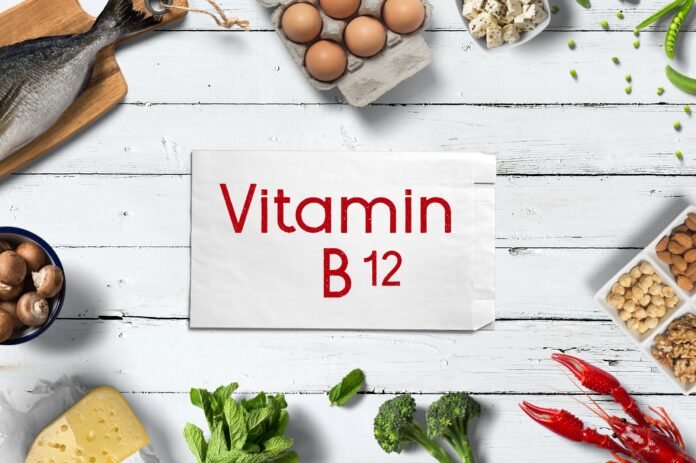Low levels of Vitamin B12 can lead to a range of health issues, so it’s essential to recognize the signs your body might be giving you when it’s deficient in this important nutrient. Here are seven telltale signs that could indicate you have low Vitamin B12 levels:
- Fatigue and Weakness: One of the most common signs of low Vitamin B12 is constant fatigue and weakness. This is because B12 plays a vital role in energy production. When you lack this vitamin, your body can’t produce the energy it needs to keep you feeling alert and active.
- Pale or Jaundiced Skin: A Vitamin B12 deficiency can also affect your skin. You might notice that your skin becomes pale or even jaundiced (yellowish) due to the breakdown of red blood cells. B12 is essential for red blood cell production, and without it, your body can’t create healthy, functional red blood cells.
- Tingling Sensation: A tingling sensation, or “pins and needles,” in your extremities is another common sign of low Vitamin B12. It’s typically felt in the hands and feet and is caused by damage to the nerves due to a lack of Vitamin B12.
- Memory and Cognitive Problems: Vitamin B12 is essential for brain health, and its deficiency can lead to memory problems, difficulty concentrating, and even mood changes. You might experience memory lapses, confusion, and difficulty with cognitive functions.
- Mouth Ulcers: Vitamin B12 is necessary for the proper functioning of the oral cavity. A deficiency can lead to the development of mouth ulcers, making it painful to eat or speak.
- Vision Problems: In severe cases, a Vitamin B12 deficiency can affect your vision. You might notice blurred or disturbed vision due to damage to the optic nerve.
- Balance and Coordination Issues: Low B12 levels can affect the nerves responsible for balance and coordination. This can result in difficulty walking, frequent falls, and an unsteady gait.
If you experience one or more of these symptoms, it’s essential to consult a healthcare professional. A simple blood test can diagnose a Vitamin B12 deficiency, and your healthcare provider can recommend appropriate treatment, which may include dietary changes and B12 supplements.
It’s important to address a Vitamin B12 deficiency promptly as it can lead to severe and irreversible neurological damage if left untreated. Ensuring that you maintain adequate levels of this essential vitamin is key to staying healthy and feeling your best.
Remember, it’s always best to consult a healthcare professional for a proper diagnosis and guidance on managing a Vitamin B12 deficiency.
Vitamin B12, also known as cobalamin, is a water-soluble vitamin that plays a crucial role in various bodily functions. Here are some more details about Vitamin B12 and its deficiency symptoms:
Vitamin B12 and Its Functions:
- Vitamin B12 is essential for DNA synthesis, red blood cell production, and proper neurological function.
- It plays a key role in converting food into usable energy, making it vital for metabolism.
- B12 is primarily obtained from animal-based foods, including meat, fish, dairy products, and eggs. Vegetarians and vegans are at a higher risk of B12 deficiency as they may not get adequate amounts from their diets.
Risk Factors for Vitamin B12 Deficiency:
Several factors can increase the risk of a B12 deficiency:
- Dietary Choices: Strict vegetarians and vegans may not consume enough B12-rich foods.
- Gastrointestinal Issues: Conditions like celiac disease, Crohn’s disease, or atrophic gastritis can impair the absorption of B12 in the digestive system.
- Pernicious Anemia: This autoimmune condition affects the stomach’s lining and interferes with B12 absorption.
- Aging: As people age, they might produce less stomach acid, which is necessary to release B12 from food.
- Medications: Long-term use of certain medications, such as proton pump inhibitors and metformin, can inhibit B12 absorption.
- Surgical Procedures: Some weight loss surgeries can reduce the body’s ability to absorb B12 from food.
Treatment for Vitamin B12 Deficiency:
If you’re diagnosed with a B12 deficiency, your healthcare provider will recommend the appropriate treatment, which may include:
- Dietary Changes: Increasing your intake of B12-rich foods.
- Supplements: Taking oral B12 supplements.
- Injections: Severe cases may require B12 injections to bypass absorption issues.
All About Vitamin B12
Remember that self-diagnosing or self-treating a B12 deficiency without consulting a healthcare professional can be risky. While supplements are available over the counter, it’s important to get proper guidance on the correct dosage and duration.
Furthermore, a B12 deficiency can sometimes mask a folate deficiency or iron deficiency anemia, making a precise diagnosis crucial.
In addition, recognizing the signs of low Vitamin B12 and understanding the risk factors associated with deficiency is essential for maintaining good health. If you suspect you have a B12 deficiency, it’s advisable to consult with a healthcare provider for a proper evaluation and tailored treatment. A balanced diet, regular check-ups, and following your healthcare provider’s recommendations can help you manage your B12 levels effectively.

